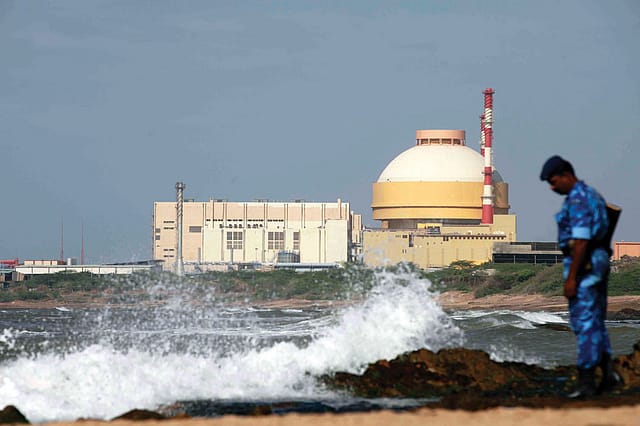Power Bank

IN A STATEMENT TO the Lok Sabha on December 11, Union Minister of State for Science and Technology Jitendra Singh said that nuclear power generation in India had doubled in the last 10 years and by 2031-32, it would triple. It had been 4,780MW in 2014. By 2024, it became 8,180MW and the projection is 22,480MW for that future date. This might be impressive but still far away from what it ought to be.
Coal still accounts for the overwhelming majority of power generation and, once you have decided that it is not the ideal medium, nuclear ought to be a main consideration. Nuclear energy however is accompanied with the fear of an accident's fallout. This is largely because of how it came into being—as a bomb, and so the human imagination remains trapped in that memory. There will be accidents when it comes to nuclear power generation but it will not be anywhere near what weapons can unleash.
If you want an instance of how fear can lead a country to commit energy harakiri, you just have to turn to Germany. Last year saw it shut down the last of its nuclear plants. Till 2011, nuclear was producing 25 per cent of its power. Not only did it have to turn to conventional energy sources despite their pollution but also ran headlong into an energy crisis because it was now dependent on other countries. Like Russia for gas and when it invaded Ukraine, that tap dried out. Price of power went up impacting industry. The woes go on.
Openomics 2026: Continuity and Conviction
06 Feb 2026 - Vol 04 | Issue 57
The performance state at its peak
Germany's decision was triggered by the 2011 Fukushima nuclear power plant disaster in Japan following a tsunami. Radioactive material spilled over and tens of thousands of people had to be shifted. Yet, the number of people who actually died from radiation was just one, a worker in the plant. People today don't die in large numbers in coal mining accidents as they used to but even now it is still more than one for every country that does mining. It doesn't lead to radical switchovers from coal to a different form of power generation. The magnitude of the next nuclear power accident could be worse but when you are talking about the cleanest energy out there and one which can be limitless, then some collateral damage must be put into the equation. Eventually, solutions will be found. To discard the option, as Germany has done, invites bigger problems.
The last Union Budget indicated what the future could look like. It spoke of the private sector being roped in for collaborations to build small nuclear reactors and also set aside a fund for research and development. Nuclear power is in some ways an inevitability considering the infrastructure and resources needed for other energy forms like wind or solar. Nuclear power is in some ways an inevitability considering the infrastructure and resources needed for other forms like wind or solar. Also, the future will demand more viable energy alternatives. For instance, the artificial intelligence age is upon us but it requires phenomenal amounts of energy for computing power. India's enthusiasm for nuclear power for its energy requirements will hopefully not fall into a fear trap.
